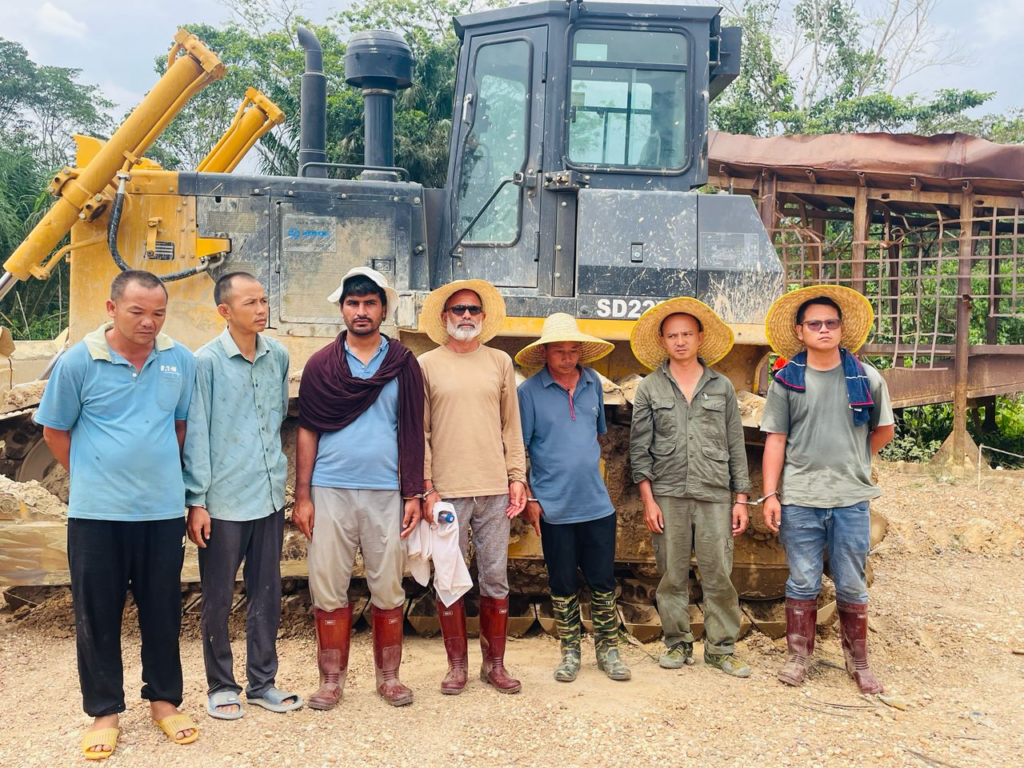Deputy Interior Minister Ebenezer Terlarbi has sparked intense public debate following comments on Joy News’ PM Express, where he defended government’s new approach to dealing with illegal mining suspects, especially foreign nationals, by prioritising deportation over prosecution.
Mr Terlarbi’s remarks come on the back of a directive by the Interior Minister, Muntaka Mubarak, instructing the Inspector General of Police (IGP) to immediately transfer all regional, divisional, and district police commanders stationed in mining areas.
The move is aimed at injecting fresh resolve into the fight against galamsey, which many believe has stalled under the weight of ineffective leadership and entrenched interests.
But it was the decision to deport foreign nationals caught in galamsey operations, particularly Chinese citizens, without trial that dominated the conversation.
“Let’s be realistic,” Terlarbi said.
“You arrest about 80 Chinese, and you have to find a place to keep them, and then sometimes even vehicles to take them to court are a problem. You go to court and they succeed in getting bail.”
He argued that the sheer logistical, legal, and financial burden of keeping foreign galamsey suspects in Ghana’s already overstretched prison system has forced the government to consider what he called a “more innovative” path.
“We have another challenge at our prisons,” he said.
“We are looking at 1,400 inmates we have now, and feeding them is even a problem. So if there’s a way not to exacerbate the situation by sending them back to their home countries, I think that I would opt for that.”
When pushed by the host on why the legal process is upheld for Ghanaians but circumvented for foreigners, Terlarbi said, “Not really… but let’s be realistic.”
He acknowledged the double standards but pointed to operational difficulties. “You see, when you arrest them, they tell you, ‘Take me to court.’ They have lawyers, which is their right, and they need to be proven guilty by our courts.”
However, he maintained that the judicial process can be frustrating and protracted, especially when suspects arrive without proper identification.
“You arrest some of them, then they tell you they don’t have their passports, and their identities become difficult to establish. Once they get into the system, it is difficult to track some of them.”
Terlarbi admitted that the legal challenges are similar for both local and foreign suspects but hinted at undisclosed complexities behind the scenes.
“Certainly, but there are a few things that I wouldn’t like to disclose. Some of the things that happen behind the scenes, I wouldn’t like to disclose everything on air or in public,” he added cryptically.
“But there’s so much going on. In fact, if we don’t take care, we are going to lose this fight again.”
While the policy may be born out of logistical and diplomatic constraints, the justification—that Ghana cannot feed and house 80 Chinese inmates—has sparked outrage from critics who view it as a surrender of sovereignty and a clear message of unequal justice.
The Deputy Minister’s defense reflects a growing tension between practical statecraft and public expectations of fairness and accountability in law enforcement.
DISCLAIMER: The Views, Comments, Opinions, Contributions and Statements made by Readers and Contributors on this platform do not necessarily represent the views or policy of Multimedia Group Limited.
Tags:

